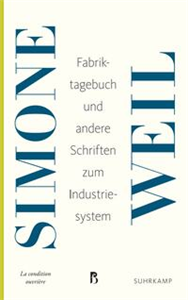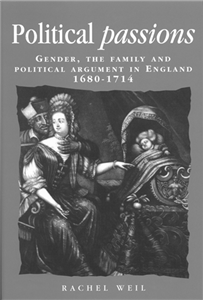Your Search Results
-
Simon's Books
Simon is a little boy that enjoys reading great stories with the most beautiful illustrations.
View Rights Portal
-
Promoted ContentApril 2019
Fabriktagebuch
by Simone Weil, Heinz Abosch, Albertine Thévenon
In den Jahren 1934 und 1935 hat Simone Weil, damals aktive sozialistische Syndikalistin, ihre Erfahrungen in einer Fabrik in einem Tagebuch festgehalten, das heute mit Recht zu den wichtigsten politischen Dokumenten jener Epoche zählt. Neben dem eigentlichen Fabriktagebuch, das 1951 unter dem Titel La condition ouvrière erschienen ist, beschäftigt Weil sich in weiteren Texten aus dieser Periode zwischen 1932 bis 1942 mit der Fabrikarbeit, mit der industriellen Arbeitsorganisation und der Gewerkschaftsbewegung. Es gibt kein vergleichbares Stück politischer Literatur aus der Arbeitswelt jener Zeit. Das Fabriktagebuch und die mit ihm verknüpften philosophischen und moralischen Erläuterungen sind zeitlose, einprägsame Merk- und Argumentationstexte der europäischen Arbeiterbewegung. Zu Lebzeiten war Weil in Frankreich nur einem kleinen Kreis bekannt, doch schon kurz nach ihrem Tod verbreiteten sich ihre Schriften rasant. Ihre philosophischen, sozialkritischen und politischen Ideen zählen zu den wichtigen des 20. Jahrhunderts. Sie hinterließ ein vielfältiges Œuvre, darunter Gedichte, Briefe, Tagebücher, Polemiken, Essays und wissenschaftliche Arbeiten.
-
Promoted Content
-
 Trusted Partner
Trusted Partner
-
 Trusted Partner
Humanities & Social SciencesApril 2008
Trusted Partner
Humanities & Social SciencesApril 2008Political passions
Gender, the family and political argument in England, 1680–1714
by Rachel Weil, Peter Lake, Anthony Milton, Jason Peacey, Alexandra Gajda
Ideas about marriage, gender and the family were central to political debate in late Stuart England. Newly available in paperback, this book shows how political argument became an arena in which the proper relations between men and women, parents and children, public and private were defined and contested. Using sources that range from high political theory to scurrilous lampoons, she considers public debates about succession, resistance and divorce. Weil examines the allegedly fraudulent birth of the Prince of Wales in 1688, the uses to which Williamite propagandists put the image of the paradoxically sovereign but obedient Mary II, anxieties about the influence of bedchamber women on Queen Anne, the political self-image of the notorious Duchess of Marlborough, the relationship of feminism and Tory ideology in the polemical writings of Mary Astell and the scandal novels of Delariviere Manley. Solidly grounded in current historical scholarship, but written in an engaging manner accessible to non-specialists, this book will interest students of literature, gender studies, political culture and political theory as well as historians. ;
-
 Trusted Partner
March 2024
Trusted Partner
March 2024Stoffwechselpolitik
Arbeit, Natur und die Zukunft des Planeten | Vom kolonialen Dreieckshandel bis zur Care-Krise
by Simon Schaupp
Wenn wir die ökologische Krise verstehen wollen, müssen wir die Arbeitswelt verstehen. Denn es ist die Arbeit, durch die Gesellschaften laut Karl Marx ihren Stoffwechsel mit der Natur vollziehen. Arbeitspolitik ist daher für Simon Schaupp stets auch Umweltpolitik – oder »Stoffwechselpolitik«. Dabei spielt die Natur selbst eine aktive Rolle: Je weiter ihre Nutzbarmachung vorangetrieben wird, desto drastischer wirkt sie auf die Arbeitswelt zurück. Wie produktiv diese Perspektive ist, zeigt der Soziologe an einer Vielzahl historischer Beispiele: Ohne Moskitos sind weder Aufstieg noch Niedergang der Plantagenwirtschaft zu verstehen. Die Durchsetzung der Gewerkschaften wurde unter anderem durch die neuen Machthebel möglich, welche die materiellen Eigenschaften der Steinkohle den Beschäftigten an die Hand gaben. Und auch das Fließband wurde nicht zuletzt deshalb eingeführt, weil sich in frühen Schlachtfabriken infolge von Streiks verwesende Tierkadaver stauten. Soll die Erderwärmung zumindest verlangsamt werden, setzt dies für Schaupp eine Transformation der Arbeitswelt voraus: Wir müssen die Logik der expansiven Nutzbarmachung überwinden und die Autonomie der Natur ernst nehmen.
-
 Trusted Partner
Trusted Partner
-
 Trusted Partner
Trusted Partner
-
 Trusted Partner
Trusted Partner
-
 Trusted Partner
Trusted Partner
-
 Trusted Partner
Trusted Partner
-
 Trusted Partner
Trusted Partner
-
 Trusted Partner
Trusted Partner
-
 Trusted Partner
Trusted Partner
-
 Trusted Partner
January 2002
Trusted Partner
January 2002Probleme des Kantischen Denkens.
Einleitung und Übersetzung von Hector Wittwer.
by Weil, Eric
-
 Trusted Partner
Trusted Partner
-
 Trusted Partner
Trusted Partner
-
 Trusted Partner
Trusted Partner
-
 Trusted Partner
Trusted Partner
-
 Trusted Partner
Trusted Partner
-
 Trusted Partner
December 2002
Trusted Partner
December 2002Zur preußischen Verfassungsfrage. Reprint. Hrsg. von Norbert Simon.
Erstveröffentlichung in: "Deutsche Vierteljahrs Schrift. Erstes Heft. 1852". Verlegt durch W. Keiper Berlin, 1940. Besorgt und mit einem Nachwort versehen von Carl Schmitt. Mit handschriftlichen Randbemerkungen und Notizen von Joseph H. Kaiser.
by Stein, Lorenz von / Epilog von Schmitt, Carl; Herausgegeben von Simon, Norbert

























